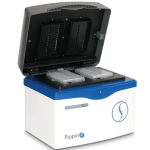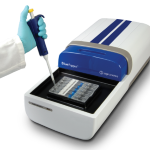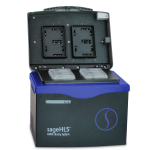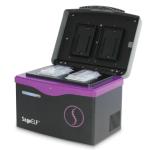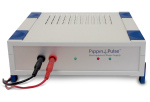Next generation sequencing to identify novel genetic variants causative of autosomal dominant familial hypercholesterolemia associated with increased risk of coronary heart disease
July 2015
Authors:
Faisal A. Al-Allaf, Mohammad Athar, Zainularifeen Abduljaleel, Mohiuddin M. Taher, Wajahatullah Khan, Faisal A. Ba-hammam, Hala Abalkhail, Abdullah Alashwal
Info:
Scientists from Saudi Arabia published a paper in Gene demonstrating the use of targeted sequencing to detect pathogenic variants associated with familial hypercholesterolemia, including the discovery of a novel heterozygous variant. Pippin Prep was used for DNA size selection prior to sequencing on an Ion Torrent PGM.
Citation:
Gene
doi: 10.1016/j.gene.2015.03.064
Isolation via next-generation sequencing of microsatellites from the Tasmanian macroalgae Lessonia corrugata (Lessoniaceae)
July 2015
Authors:
Halley M. S. Durrant, Christopher P. Burridge, and Michael G. Gardner
Info:
Scientists from Australia developed microsatellite markers for this macroalgae, an important component of the local marine ecosystem, that will allow for future population genetic studies of the organism. They used Pippin Prep to size select libraries for Ion Torrent sequencing.
Citation:
Appl Plant Sci. 2015 Jul; 3(7)
doi: 10.3732/apps.1500042
A genomic selection component analysis characterizes migration-selection balance
July 2015
Authors:
Patrick J. Monnahan, Jack Colicchio, and John K. Kelly
Info:
In the journal Evolution, scientists from the University of Kansas report the population study of a plant species in novel habitat, which allowed them to carefully monitor genetic evolution. They found indications of gene flow, and observed as the population’s genome altered from existing populations in other habitats. They used Pippin Prep for size selection.
Citation:
DOI: 10.1111/evo.12698
Cavitation Enhancing Nanodroplets Mediate Efficient DNA Fragmentation in a Bench Top Ultrasonic Water Bath
July 2015
Authors:
Sandeep K. Kasoji, Samantha G. Pattenden, Ewa P. Malc, Chatura N. Jayakody, James K. Tsuruta, Piotr A. Mieczkowski, William P. Janzen, Paul A. Dayton
Info:
This paper from researchers at the University of North Carolina describes the use of nanodroplets to facilitate fragmentation of DNA in an ultrasonic water bath, instead of high-end acoustic sonication instruments. The team used Pippin Prep size selection in their library prep.
Citation:
PLoS One
DOI: 10.1371/journal.pone.0133014
KRAS-dependent sorting of miRNA to exosomes
July 2015
Authors:
Diana J Cha, Jeffrey L Franklin, Yongchao Dou, Qi Liu, James N Higginbotham, Michelle Demory Beckler, Alissa M Weaver, Kasey Vickers, Nirpesh Prasad, Shawn Levy, Bing Zhang, Robert J Coffey, and James G Patton
Info:
Scientists from Vanderbilt University and the HudsonAlpha Institute for Biotechnology studied exosomes released by colorectal cancer cells with mutated KRAS, finding that exosomal miRNAs can function in target cells and that exosomal profiles are different from cellular profiles. Pippin Prep was used to select small RNAs, and sequencing was performed on an Illumina HiSeq.
Citation:
eLife 2015;4:e07197
DOI: http://dx.doi.org/10.7554/eLife.07197
